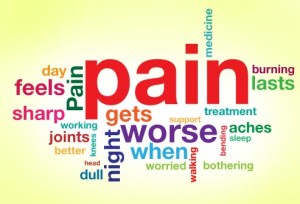In theory, the insurance company is supposed to consider each and every piece of evidence submitted in connection with your disability claim. In reality, the medical evidence tends to steal the show. Why is that?
Medical Evidence is a key factor in winning a long term disability claim

Many clients are surprised to hear that the power to approve or deny their claim is not held by a doctor, but a specialized claims analyst who often lacks any formal medical training or licensing. The analyst will conduct his or her review by comparing the medical evidence with the other evidence in the file, including your description of your disabling symptoms.
If your file contains clear and sufficient medical evidence to substantiate your symptoms, the analyst is much more likely to approve your claim.
3 key types of medical evidence to substantiate your claim
There are three key types of medical evidence used to prove your disability claim. These include subjective findings, objective findings, and medical opinions.
Each type is necessary and consistency is key.
- Subjective findings. These include medical documentation of your reported symptoms, such as pain, fatigue, confusion, shortness of breath, etc. Consistent documentation of your subjective findings will bolster your claim, while inconsistent or infrequent documentation will weaken it.
- Objective Findings. These include any clear diagnostic signs of abnormalities, such as diagnostic imaging, diagnostic test results, laboratory results, etc. Objective findings cannot be faked or exaggerated, so the analyst will consider them very carefully.
- Medical Opinions. These include the professional assessments of physicians and qualified medical staff regarding your conditions and resulting limitations. The opinion evidence is absolutely crucial. It provides the analyst, who is not a doctor, with valuable insight into your medical conditions and resulting limitations.
Building strong subjective and objective medical evidence
There are a number of ways that Riemer Hess works to build a strong medical file for your claim. While each any every case is different, we typically recommend that you:
- Report all of your symptoms to your doctors during each visit. This will help ensure that all of your symptoms are well-documented in your medical records.
- Treat frequently. It may seem repetitive, but it helps to familiarize your doctors with your conditions and to create consistency within the file.
- Undergo all recommended diagnostic and objective testing. It is difficult for the analyst to ignore objective findings because they cannot be faked or exaggerated.
- Undergo additional evaluations. We may recommend that you undergo additional evaluations to substantiate your claim. These often include functional capacity evaluations or neuropsychiatric evaluations. Undergoing these evaluations will help provide additional objective proof of your symptoms and limitations.
- Comply with your doctors’ recommended treatment. If the analyst finds that you are non-compliant with your doctors’ treatment, the analyst may think that you do not want to get better.
- Keep a detailed list of your doctors’ appointments. Keeping good records of your appointments will help ensure that each and every piece of relevant medical evidence is obtained for your claim.
- Keep a detailed list of your medications and their side-effects. Keeping records of your medications and side-effects will the analyst understand how your medications may impact your ability to work (i.e., drowsiness, upset stomach, etc.).
Obtaining strong opinion medical evidence
There are several ways that Riemer Hess will work to build supportive medical opinion evidence for your claim.
While each case is different, we typically:
- Provide questionnaires to your doctors. We provide questionnaires to your doctors that are customized to address your specific condition(s). These questionnaires are drafted to help the analyst understand the limiting nature of your condition.
- Request narrative letters from your doctors. We may request narrative letter from your doctors to address specific concerns, unexplained symptoms, or complicated conditions. Your doctors’ explanation will help the analyst better understand history and nature your disability.
- Obtain opinions from other sources. We may ask other doctors or medical professionals to review your medical evidence and comment on it. These comments will provide the analyst with an objective opinion to consider. These comments often bolster your own doctors’ opinions.
Our attorneys and staff will review all opinion evidence before submitting it to the analyst. We will ensure that the opinions are comprehensive, consistent, and accurate. If the medical opinions are well-supported and consistent with the other findings, the analyst is much more likely to approve your disability claim.
The medical evidence can make or break your case
In sum, you should always remember that the medical evidence can make or break your case. Therefore, you must take every step necessary to ensure that the medical evidence accurately and thoroughly explains your disability.














